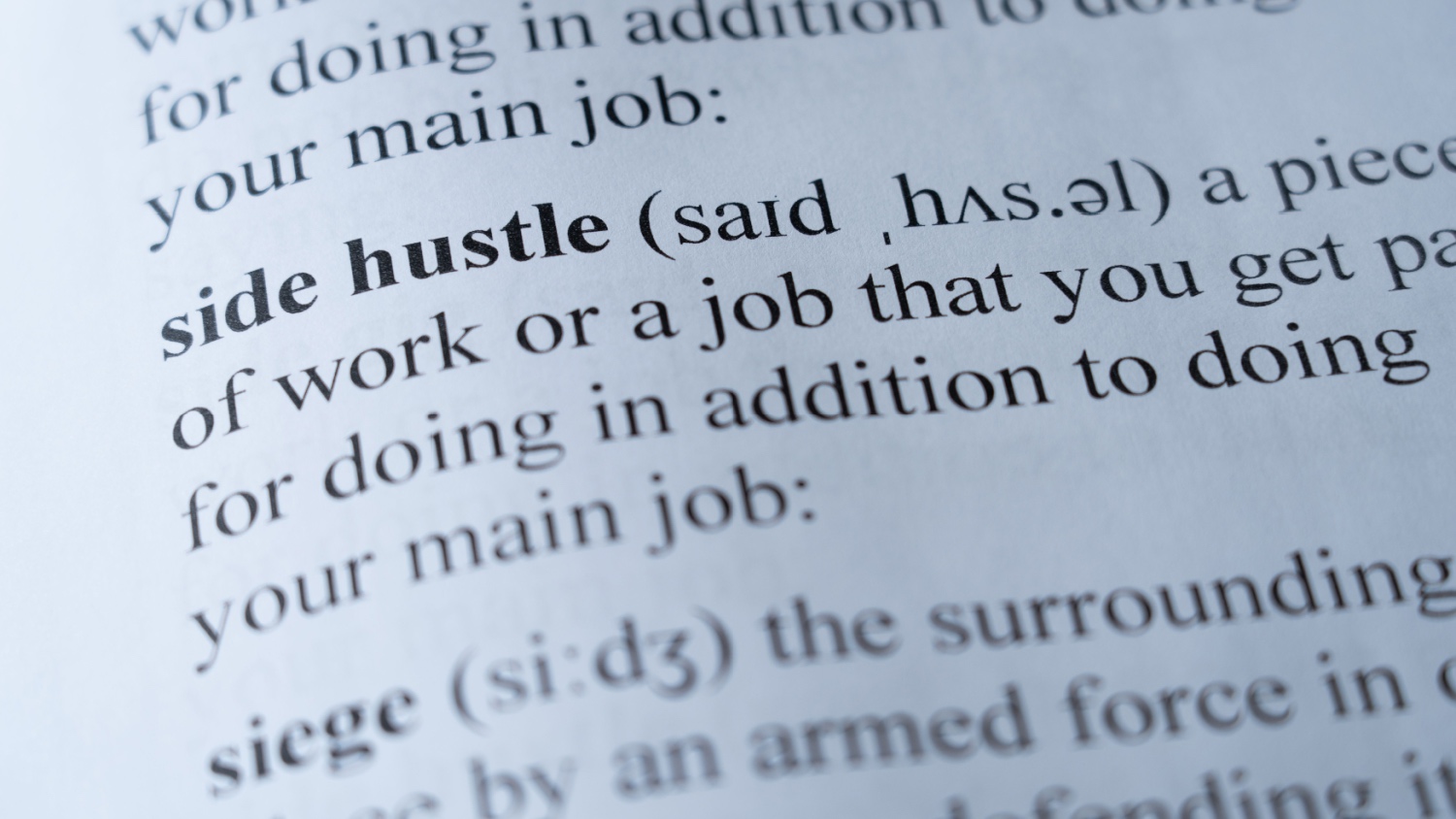Opportunity in Uncertainty: Tariffs and Small Business
The ongoing trade war between the U.S. and its partners could open new avenues to entrepreneurs, Poole scholar Jon Carr says.

Product shortages have been a focus of much of the media coverage on how the Trump administration’s tariffs will affect small businesses. But Jon Carr, Jenkins Distinguished Professor of Entrepreneurship, sees potential opportunities for American entrepreneurs, if they’re willing to take a hard look at the businesses they’ve built.
If successful, the tariffs—many of which are currently on hold—could open new markets to U.S. small businesses and keep more of the value they create in this country.
“Small businesses can react to this,” Carr said. “The survivors are going to react successfully by changing their business models and flipping on their entrepreneurial switch.”
Carr recently discussed the wide variety of small businesses that exist in America and what tariff effects can mean for specific sectors, using some examples from here in North Carolina.
Q: What does “small business” mean? Is there a standard definition?
A: There are Census designations for them. They’re called “small and medium enterprises,” or SMEs, and they tend to have less than 100 employees. Here in North Carolina and other places, we’re mostly looking at businesses with 25 or fewer employees, often in manufacturing, retail, wholesale or business-to-businesses.

These types of businesses often have challenges in terms of their ability to manage inventory and cash flow. They can’t just sit there and wait out difficult times because they often have low profit margins. And they have limited market penetration in some instances.
Q: How do tariffs affect these businesses?
A: For some small businesses, it’s painful. It’s going to be challenging for those that rely on cheap products from other countries to build inventory and manage their cash flow and their staffing. These types of businesses sometimes seek suppliers based on low cost, and their customers have gotten used to having cheaper products. The tariffs have exposed the fact that small businesses who adopt this particular business model are now highly reliant on cheaper overseas products. So this is going to be a challenge for them in the short run, and potentially the mid- and long run, too.
But it’s important to recognize that not all small businesses are retail firms. Some sell business to business, some do product integrations, some of them are suppliers to other businesses in the United States and other parts of the globe. And some are manufacturers themselves. You can’t just lump all small businesses together, and these tariffs can create opportunities for some of them to produce products and offer services here in the United States. There are already instances where supply chain diversification and supplier renegotiation are being considered. In some cases, US small businesses are actively shifting suppliers to the US due to tariffs.
Q: How can small businesses take advantage of those opportunities?
A: When I work with companies or have business model conversations with students, I talk about the need to turn on your entrepreneurial gene. You’ve got to flip that switch. And part of flipping that switch is understanding when there’s an opportunity.
So often, small business owners are focused on working in their business—they’ve got to get orders in, somebody’s got to sweep the floor, they’ve got to get office equipment fixed and make sure they have enough inventory ordered. That’s working in your business.
But under some circumstances such as tariff or trade barrier changes, this might be a wonderful opportunity for some of them to work on their business. They’ve got to ask: How can I change my business model to take advantage of this? Can I look beyond my typical suppliers? Maybe these small business owners have known they’re operating inefficiently, but they’ve put off fixing it until tomorrow. Well, tomorrow’s here. Now is the time to perhaps do things differently given the new economic environment.
Q: What effects would you anticipate for North Carolina small businesses?
A: The goal of the tariffs and trade barrier discussions is to accomplish many things but overall the stated goal is to hopefully bring manufacturing and supplier opportunities back to this country and to open up markets in other countries that have been closed off to the United States.
For example, our biggest industry in North Carolina is agricultural products. We think of farmers as small farms with limited tillable acreage but in fact we have very large agricultural businesses that have the ability to sell their products globally. But there are countries that refuse to buy American-grown ag products. If these tariff or trade barrier environments become much more equitable, our North Carolina ag businesses could potentially sell their agricultural products in places they’ve never been allowed to before.
(Editor’s note: According to the U.S. Department of Agriculture, North Carolina’s top ag exports are pork, tobacco, and poultry. At least 25 countries limit U.S. pork and poultry imports via tariffs, technical barriers or outright bans. Another 13 limit soybean imports, the state’s #5 ag export, according to the 2025 National Trade Estimate Report on Foreign Trade Barriers.)
Another example – One of the big tariff negotiations affects the furniture industry within the US. We once had a huge industry in North Carolina that made beautiful, amazing furniture, often by small manufacturers. Our furniture industry was recognized around the world, and employed thousands of North Carolinians across our state. That industry was largely wiped away by these unbalanced tariff and trade barriers. So – Wouldn’t it be a good thing to see these businesses reset our furniture manufacturing for the rest of the world?
These are just a few of many examples where an important break in the trade and tariff status quo can lead to new possible SME opportunities. Of course we have to manage the instability, and overcome some of the economic challenges associated with these changes. But to me, SMEs that can reflect on what they can do and seek to change their business models to take advantage of these tariff and trade situations may be in a great position to create success in the future.
Change can be challenging for sure, but where there is economic change there are business opportunities. SMEs here in our vibrant and dynamic state should step up and see what those opportunities can be!
- Categories:


